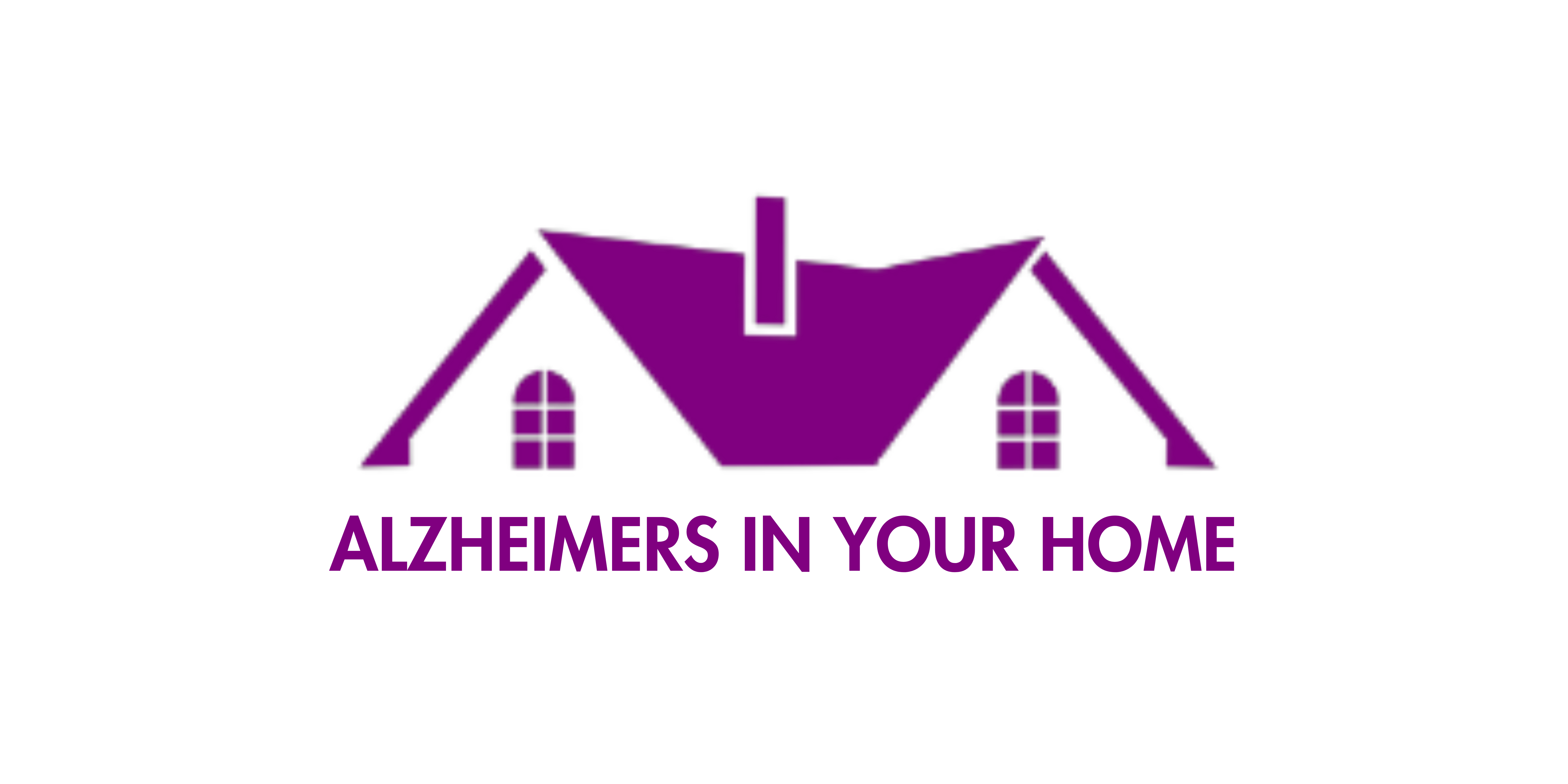One of the things I hear most from Dementia caregivers is, “I’m not sure what stage he is in.” Learning about the Dementia stages and what is coming next is one of the best steps a caregiver can take. I want to take a few minutes here to help you understand how the different stages of Dementia are determined.
Dementia is a complex journey that affects not just the person diagnosed but their loved ones as well. Many people find themselves trying to help a loved one with Dementia. They may be struggling to understand what stage their loved one is in. Understanding the stages of Dementia can help families and caregivers provide the best care possible. In this article, we’ll explore two popular models for understanding dementia stages: the 3-stage model and the 7-stage model. Additionally, we’ll introduce the Dementia FAST Scale and explain how it guides decisions about hospice care.
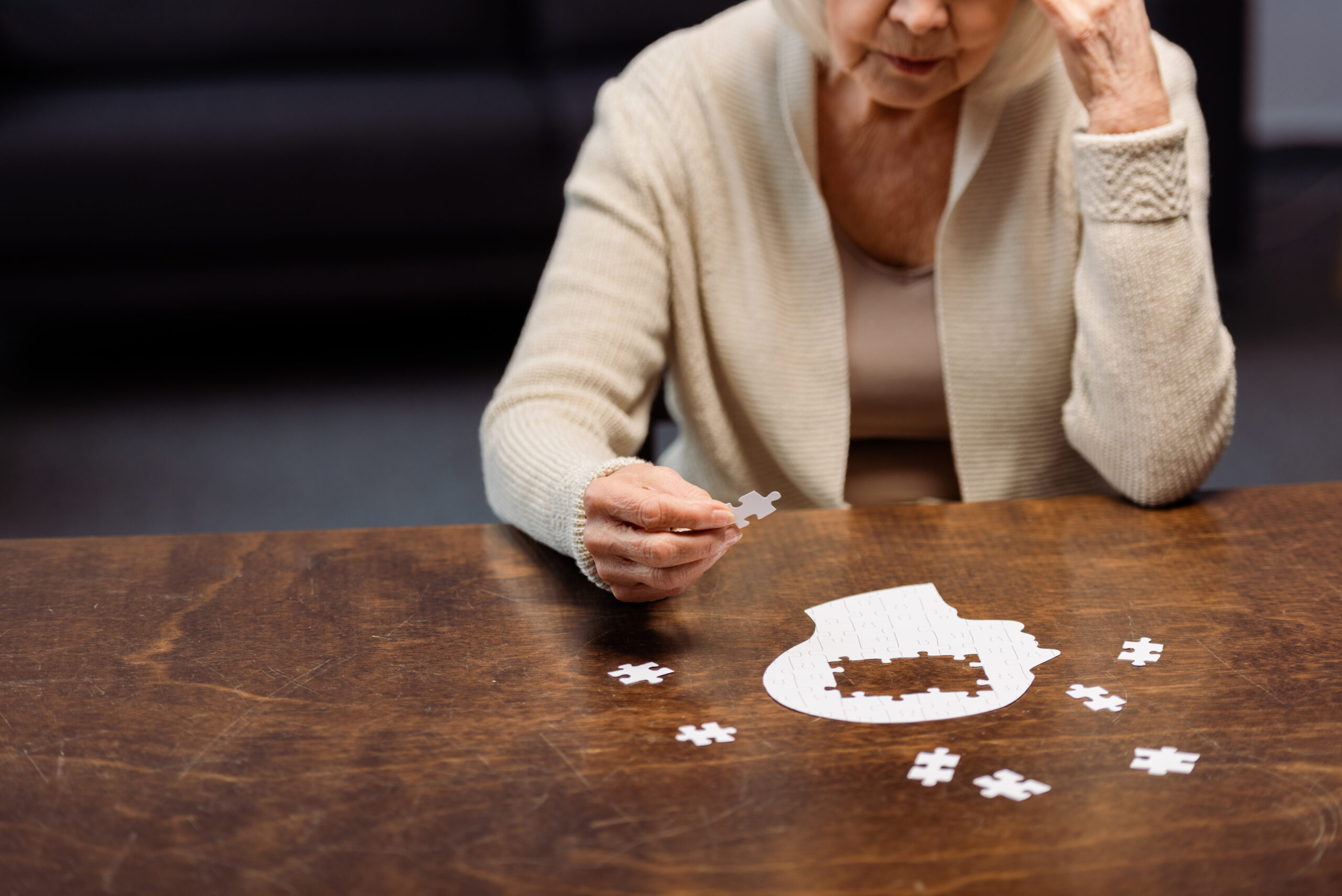
The 3-Stages of Dementia Model
Dementia, like a puzzle, unfolds in stages.
The 3-stage model was the original model. It is a simplified way to understand the progression of Dementia. Let’s imagine it as three chapters in a story.
Early Stage: This is like the beginning of the puzzle. At this stage, memory problems may become noticeable. A person may forget appointments or names. It’s essential to be patient and offer gentle reminders. For example, my aunt sometimes forgot where she put her glasses, and we’d laugh it off, helping her find them.
Middle Stage: Here, the puzzle starts to get a bit trickier. Memory loss becomes more obvious, and daily activities become challenging. Loved ones might need help with dressing, eating, or even using the bathroom. It’s essential to create a safe environment and maintain a consistent routine. At this stage, my uncle needed help remembering to take his medications, and his family made a pill organizer to keep things organized.
Late Stage: This is the most challenging part of the puzzle. In this stage, communication becomes very difficult, and physical abilities decline. People may struggle to recognize loved ones, and constant care is needed. At this stage, it is crucial to provide comfort and ensure they’re as comfortable as possible.

The 7-Stages of Dementia Model
Unraveling the complexity of Dementia.
The 7-stage model delves deeper into the dementia journey, allowing us to understand the gradual changes that occur. Each stage represents a different challenge:
- No Cognitive Decline: This is the starting point, where there’s no noticeable decline in memory or thinking.
- Very Mild Cognitive Decline: A bit like forgetting where you placed your keys. It’s normal forgetfulness.
- Mild Cognitive Decline: This stage is like a cloudy day. People might struggle with finding the right words or remembering names.
- Moderate Cognitive Decline: Here, the clouds start to get thicker. Daily tasks become more challenging, and assistance is needed.
- Moderately Severe Cognitive Decline: The clouds are now a steady rain. Memory gaps become more pronounced, and confusion sets in.
- Severe Cognitive Decline: The storm intensifies. Basic activities, like bathing and dressing, become difficult without help.
- Very Severe Cognitive Decline: The storm is at its peak. People lose the ability to communicate and usually need round-the-clock care.
Understanding these stages helps us adapt our care to the changing needs of our loved ones.
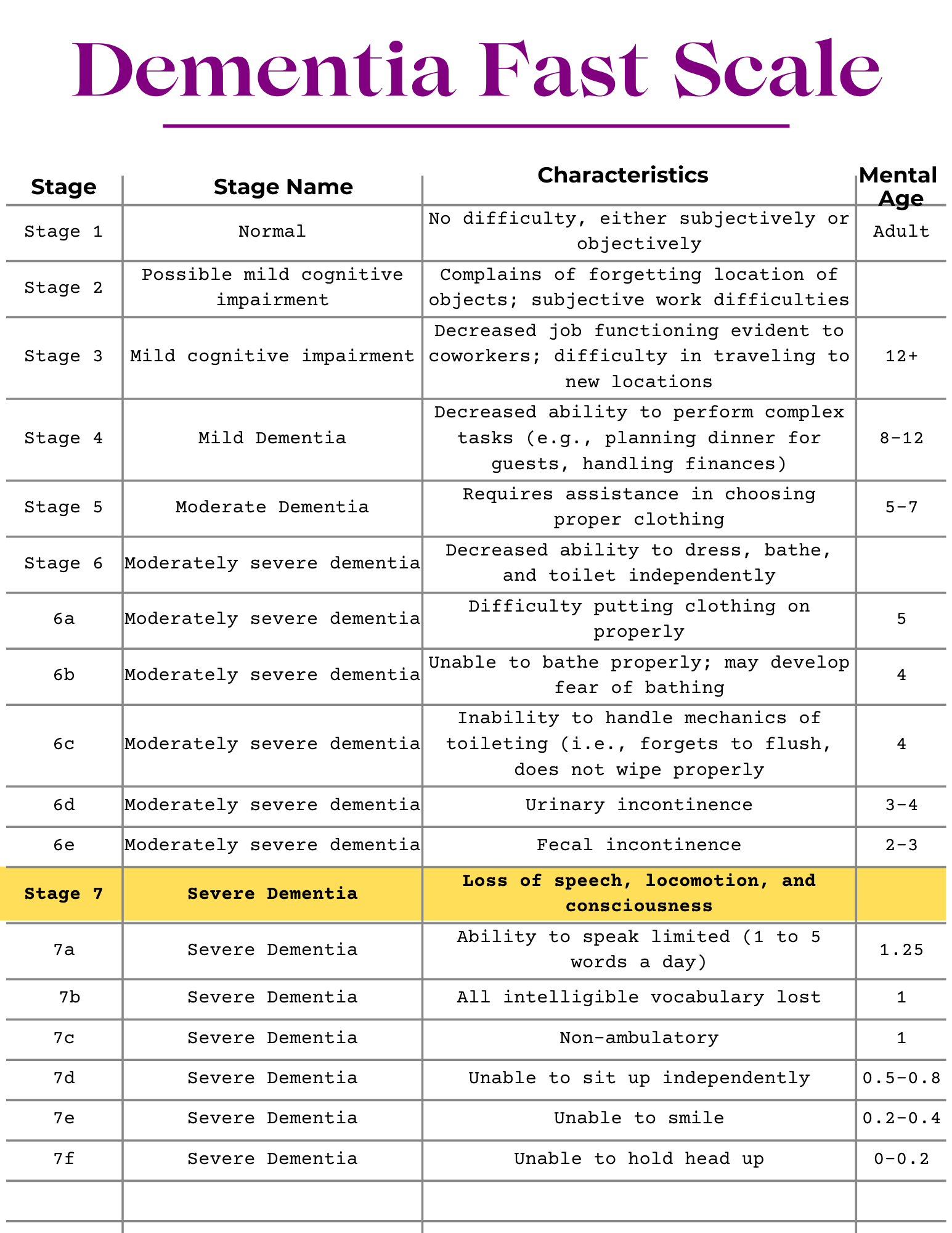
The Dementia FAST Scale: What is it?
The Dementia FAST Scale is a guide to when hospice care may be needed.
The Dementia FAST Scale, a tool used by healthcare professionals, helps determine when someone with Dementia might be eligible for hospice care. This tool is not well known to caregivers, but it provides insight into where the disease path leads. I believe it is a very valuable tool to help caregivers understand the progress of the disease
It considers a person’s functional abilities:
Functional Assessment Staging Test (FAST): This scale ranges from 1 to 7.
- FAST Stage 1: Normal functioning, no difficulty.
- FAST Stage 2: Normal functioning, slight difficulty with complex tasks.
- FAST Stage 3: Independent in basic self-care but requires help with complex tasks.
- FAST Stage 4: Supervision needed for basic self-care.
- FAST Stage 5: Assistance needed for most activities.
- FAST Stage 6: Assistance needed for all activities, and communication becomes limited.
- 6a. Improperly putting on clothes without assistance or prompting (e.g., may put streetclothes on overnight clothes, or put shoes on wrong feet, or have difficulty buttoning clothing) occasionally or more frequently over the past weeks.
- 6b. Unable to bathe properly (e.g., difficulty adjusting bathwater temp.) occasionally or more frequently over the past weeks.
- 6c. Inability to handle mechanics of toileting (e.g., forgets to flush the toilet, does not wipe properly or properly dispose of toilet tissue) occasionally or more frequently over the past weeks.
- 6d. Urinary incontinence occasionally or more frequently over the past weeks.
- 6e. Fecal incontinence occasionally or more frequently over the past weeks.
- FAST Stage 7: Total assistance needed, including eating and walking.
- 7a. Ability to speak limited to approximately a half-dozen intelligible different words or fewer in the course of an average day or in the course of an intensive interview.
- 7b. Speech ability is limited to the use of a single intelligible word in an average day or in the course of an intensive interview (the person may repeat the word over and over).
- 7c. Ambulatory ability is lost (cannot walk without personal assistance).
- 7d. Cannot sit up without assistance.
- 7e. Loss of ability to smile.
- 7f. Loss of ability to hold head up independently.
The FAST Scale helps determine when a person with Dementia may need hospice care, which focuses on providing comfort and support for both the individual and their family during the advanced stages of the disease. To be eligible for hospice with the main diagnosis of Dementia, someone with Dementia must score a 7a or above.
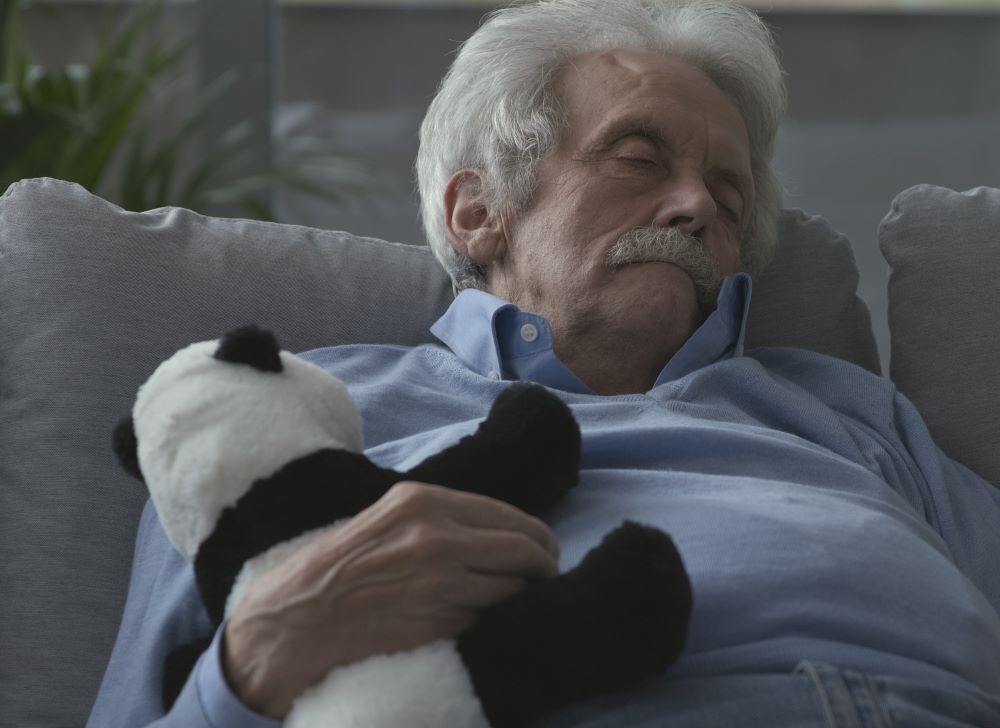
Making the Right Decisions
Being there when it matters most.
Deciding when to transition to hospice care can be tough. It’s a deeply personal choice that involves considering the person’s quality of life, medical needs, and the support available. Keep in mind:
- Quality of Life: When the person’s health declines, and they’re experiencing pain or discomfort, hospice can enhance their quality of life.
- Medical Needs: If medical treatments are no longer effective and comfort care is the priority, hospice is a compassionate choice.
- Support: Hospice provides support not just for the person with Dementia but also for their family, helping everyone through this difficult time.

The Power of Love and Understanding
Walking together on this journey.
As we care for our loved ones with Dementia, remember that every step of the way is an opportunity to show love and understanding. Even when words are scarce, our presence, smiles, and care can make a world of difference.
When to Call the Doctor
As a caregiver, it’s essential to know when to seek medical assistance promptly. While some changes in behavior and mood are typical in dementia, others may signal underlying medical issues that require immediate attention.
See the When to Call the Doctor Guide HERE.
Conclusion:
Understanding the stages of Dementia, whether through the 3-stage model or the more detailed 7-stage model, empowers us to provide better care. The Dementia FAST Scale helps guide the difficult decision of when hospice care is appropriate. As caregivers and family members, our love and support mean the world to those on this challenging journey. Let’s walk together, supporting each other and our loved ones every step of the way.
The Dementia Caregiver Blog Library
Activities, Advanced Directives, Agitation, Apathy, Approach, Apps for Caregivers, Basic Caregiving, Bathing, Bathroom Safety, Caregiver Burnout, Caregiver Compassion, Caregiver Emotions, Caregiver Help, Caregiver Loneliness, Caregiver Support, Cold & Flu Season, Communication Challenges, Dehydration, Dementia Complications, Dementia Doctors, Dementia Safety Home, Dementia Types, Dementia-Friendly, Dressing Issues, Driving Safety, Eating Problems, Fall Prevention, Family Help, Finances, Guns & Dementia, Harm Prevention, Healthcare, Help at Home, Hiding Dementia, Holidays, Hospice, Hospital Stay, In-Between Stage, Kitchen Safety, Laughter, Legal Healthcare, Marijuana use, Medication Tips, Music, Nutrition, Pain, Patience, Poop Problems, Relationships, Reminiscing, Routine, Safety, Sense of Purpose, Shadowing, Sleep Issues, Stages of Dementia, Sundowning, Television, Time Travel, Traveling, Toileting, Wandering
Exploring Caregiving Tools & Resources? Don't Forget to Check Out My Resource Page! 🌟
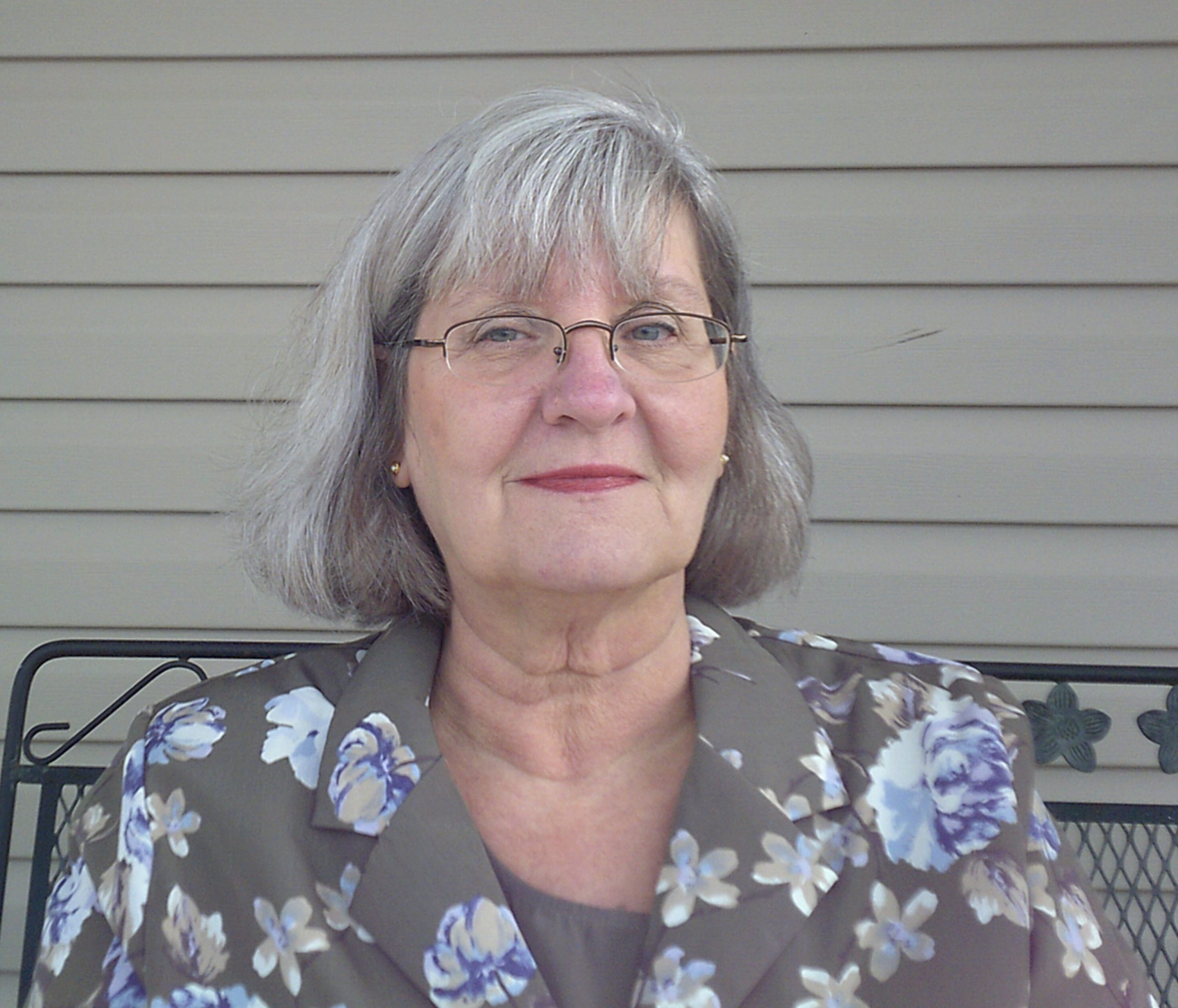
Hi, I’m Larea, a Certified Dementia Specialist and Registered Nurse with 30 years of hands-on experience helping dementia patients in various settings, from hospitals to nursing homes and hospice. Drawing on personal experiences with my family members and patients over the years, I’m here to help guide you on your caregiving journey.
